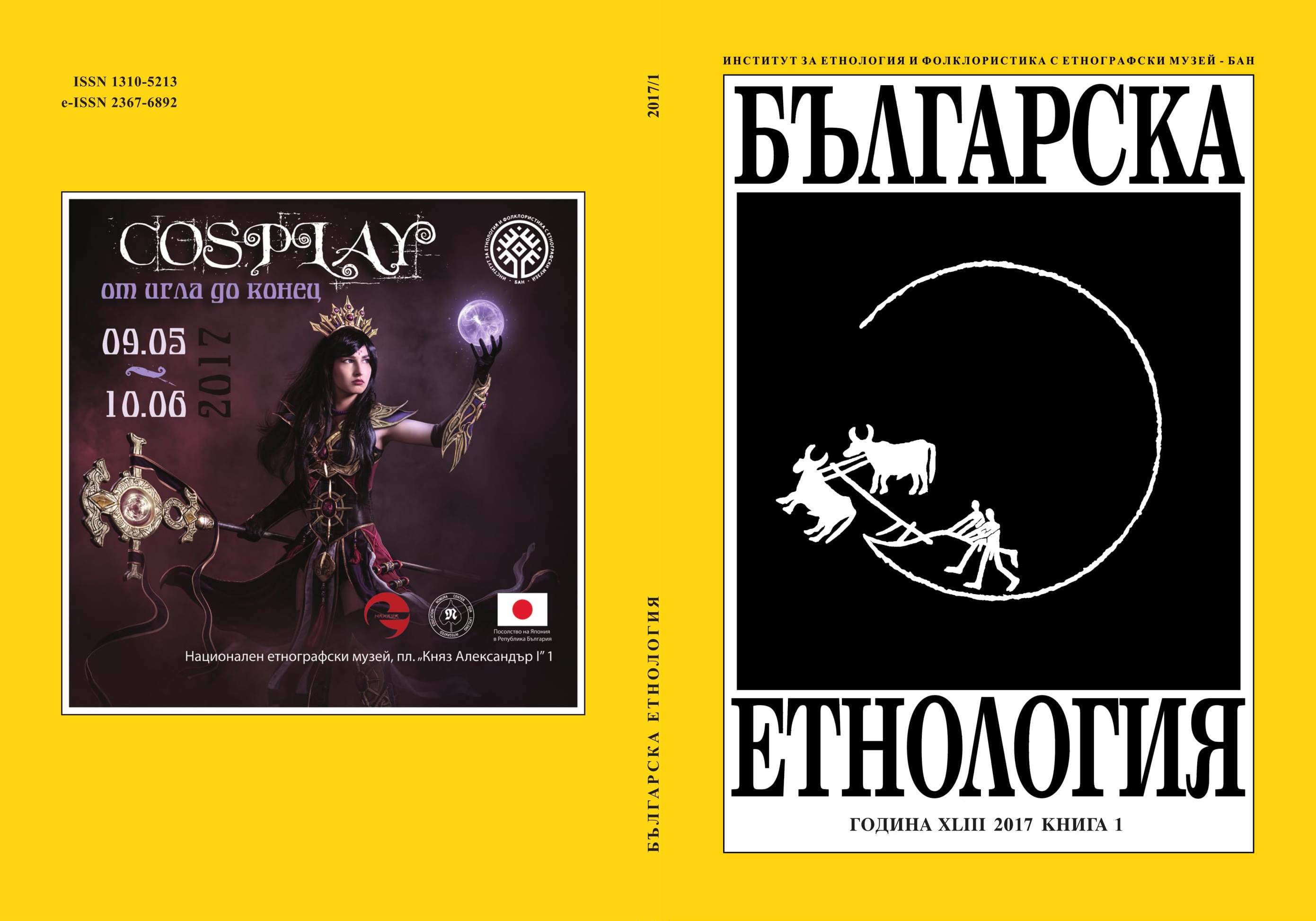
We kindly inform you that, as long as the subject affiliation of our 300.000+ articles is in progress, you might get unsufficient or no results on your third level or second level search. In this case, please broaden your search criteria.

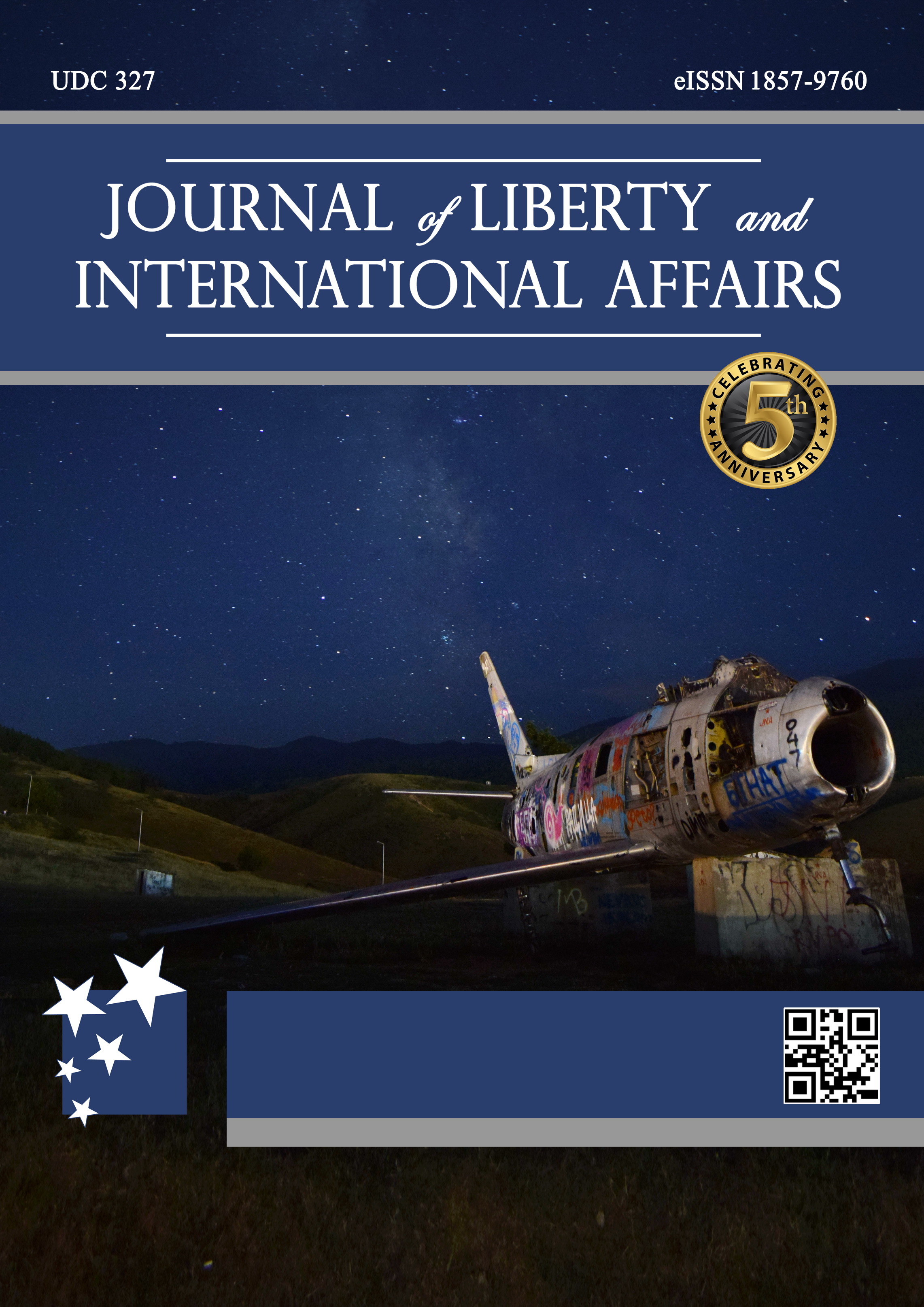
The gender-based violence in recent times has become an integral part of the on-going Boko Haram Insurgency in North-East Nigeria. Since the full-scale declaration of combat between the Nigerian state and the insurgent group, the asymmetrical tactics of the group have been evolving, based on its capabilities. The recent spike in the targeted raid and attack on female schools, markets, and female institutions purposely for abduction and kidnapping of women and girls indicated this assertion. Due to the depletion of its fighters and loss of territories, there is a surge in mass deployment of ‘women and young girls’ as material instruments of warfare: fighters, suicide bombers, human shields, bargaining tools, sex slaves, informants, and so on. This article appraises the gender push-pull factors responsible, motivation behind the current behavior, and proffers some policy guidance.
More...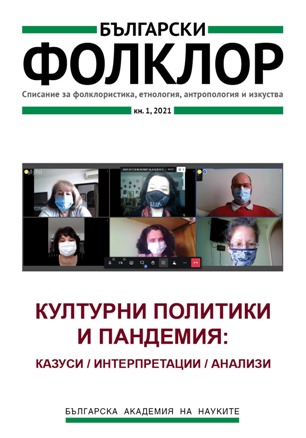
Scientific life, conference report
More...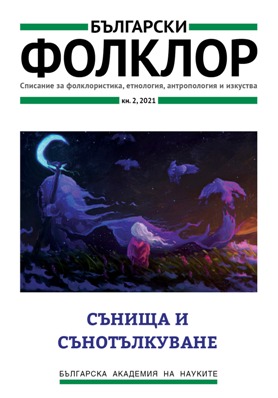
The study analyses texts that refer to dreams, excerpted from biblical, Medieval Bulgarian, literary and folklore works, and from fieldwork material collected personally by the author. The text reveals the most important features of the narrative in the dream, such as models, language formulas, and strategies for representing time. The analysis of the dream-book’s language demonstrates that today the dream-book is designed as a dictionary with its own vocabulary list and specific rules for constructing the interpretive definition, which include semantic, lexical, morphological, and syntactic laws.
More...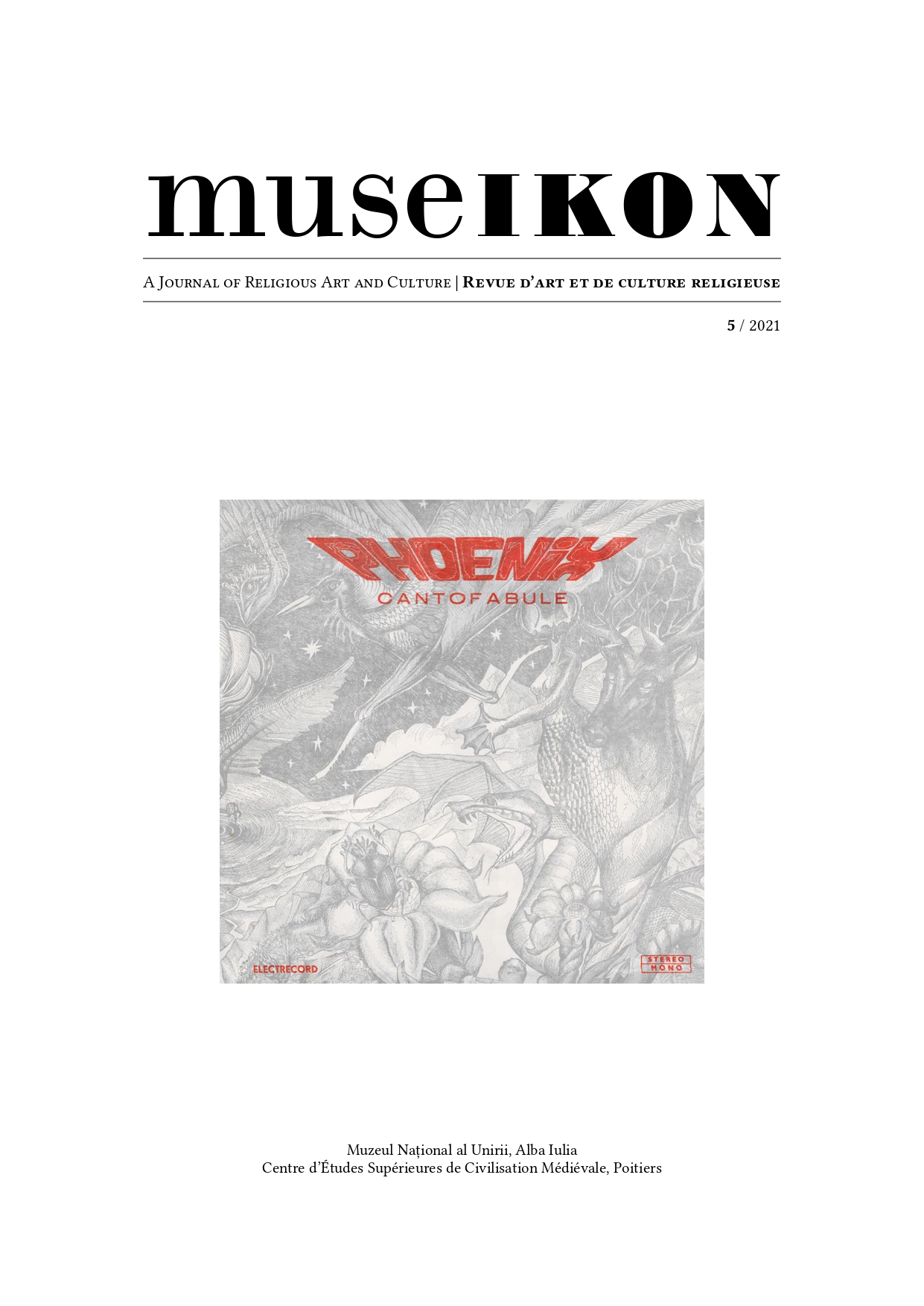
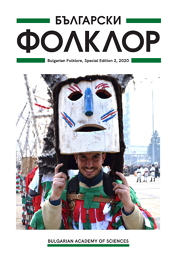
This article is dedicated to the fortieth anniversary of the founding of the Bulgarian Folklore Journal. The reflections on the Journal which are discussed here are made in the context of the political and sociocultural development of Bulgaria, as well as in the context of national and international traditions in the study of folklore. At the same time, these reflections address changes in scientific paradigms and theoretical approaches, the problems of the existing boundaries between disciplines, the re-definition of scientific scope and newly defined fields of research. The interdisciplinary nature of the Journal, the development of its scientific profile, and its transformation into a journal for scholarly research in the field of folklore studies, ethnology and anthropology in the 1990s are given special attention. Editorial politics and practices, as well as different aspects of its theoretical sensibility and applied aims are traced. The place of the Journal among Bulgarian humanities periodicals and its international visibility are also highlighted.
More...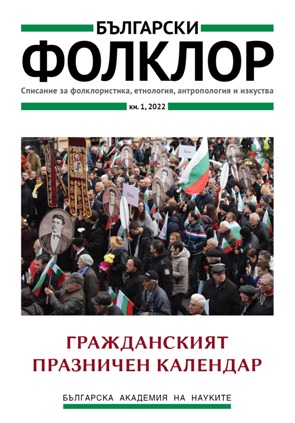
The genesis of St. George’s Day as the day of Pomorie displays the mutual development of its modern historical political myth and the last three decades’ festivity. After the democratic changes in 1989, the patron holiday of the Anhialo monastery that continued to be observed even during socialism and the fair that accompanies it were developed and transformed into an official holiday, but invented rituals brought about a myth shift: from the established in the course of a century narrative about the fight for and the restoration of justice to a story of the offered fraternal hand and forgiveness. Based on the research of the myth–ritual interaction, the author searches for answers to the questions about the significance of St. George’s Day for the local community and about this holiday’s ability to serve both national and pluralistic tasks.
More...
In my article, I analyse the newspaper imprints of some jubilee celebrations performed in the minds of Russian émigrés in Bulgaria, but also outdoors and indoors, between 1919 and 1944. Basing on M. Spariosu’s theory of exilic-utopian imagination and on the intuitive premise that an émigré community would inevitably pursue/problematize its accommodation within the host society, I locate the Russian émigré community and its celebrations within a tri-axial communicative situation whereby impulses for (self-aggrandising) introspection, mental war with the exiling power (sovietised Russia), and domestication of the host milieu are detectable. Considering newspapers as the most effective sites to host places of celebration for a (non-persecuted) ethno-cultural minority in the first half of the 20th c., and basing on prior historiography on the Russian émigrés of Bulgaria and on an overview of their periodicals, I identify as most conspicuous a constellation of jubilees that gravitated around the 50th anniversary from both the beginning and the completion of the 1877–1878 Russian-Ottoman war. Thus, I am able to discern the specificity of the communicative situation of that particular Russian émigré community against the benchmark of the ‘metropolitan’ one based in Paris. I approach these “imprints”, or “places of celebration”, as visual-verbal compositions (elaborating D. Georgiev’s ‘architecturology’ of newspaper); and as textualised experiences potentially reminiscent of the two cultural archetypes of “jubilee” for (post)Christian humankind, the Hebraic and the Roman ones.
More...
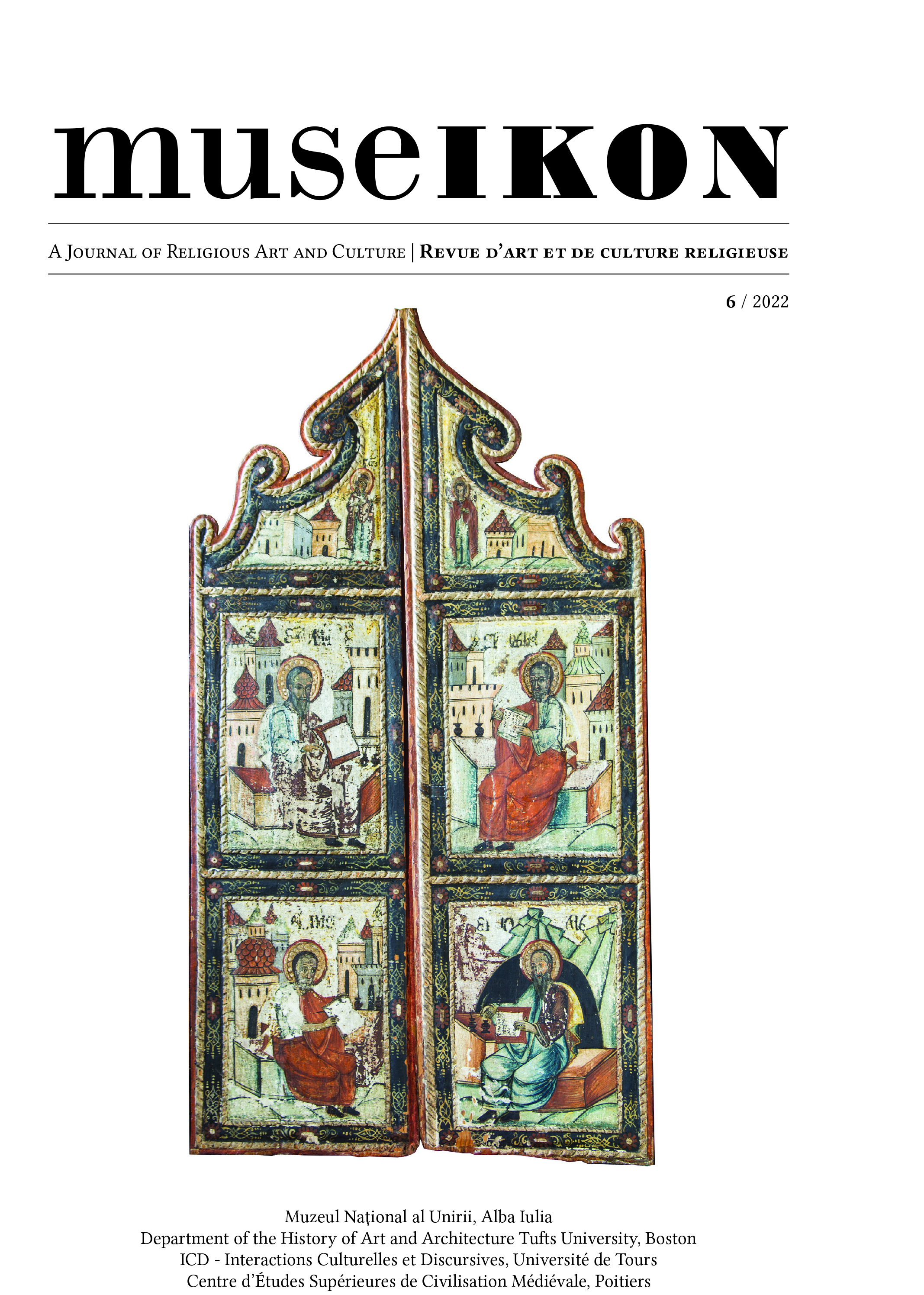

The article examined the impact of the decommunization policy in Ukraine on national identity formation. The objectives of the article were to determine the main reasons and consequences of decommunization in Ukraine. A historical approach to determine the causes of decommunization and justify its necessity is applied in the article. Sociological studies and expert opinions on decommunization are analyzed. Based on synthesis, analogy, and abstraction methods, the elaborated material is summarised, and the article’s conclusions are formulated. As a result, the conclusion has been drawn that decommunization could not contribute to the formation of national identity in Ukraine. The outcomes of decommunization had a positive effect only in combination with other efforts (educational process, dialogue with society, language policy). However, given Ukraine’s regional characteristics, it took time to unite the population around a shared historical memory, common symbols, and traditions. The policy of decommunization primarily contributed to the strengthening of regional identity. Moreover, improving the material well-being of Ukrainians and creating favorable conditions for living and working in Ukraine will unite the residents of all regions of Ukraine. These actions will significantly enhance the effect of decommunization in forming national identity.
More...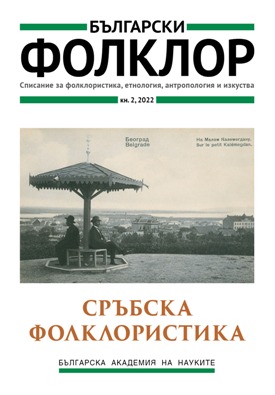
The paper presents the experience and the results of а long-term research of Serbian epics, primarily of singing to the accompaniment of gusle – the most common and preferred form of performing epic songs. Studying the tradition and the personalities proves to be important for the ethnomusicological and interdisciplinary understanding of this genre. The focus on this solo performative genre makes the relations with the guslars (epic singers who accompany their singing with gusle – a one-string bowed instrument), as primary collaborators in the research, especially intensive and complex. In relation to that, the implementation of 2003 Convention for the Safeguarding of the Intangible Cultural Heritage in Serbia is recognized as an opportunity as well as an ethical obligation of ethnomusicologists to achieve reciprocity in cooperation with guslars by supporting the safeguarding of epic singing to the accompaniment of gusle. This type of cooperation has brought new challenges and encouraged deeper reflections on social, i.e. socio-cultural responsibility and its impact on national ethnomusicology. Linking research results with cultural practice is one of the distinct challenges in contemporary humanities, so this paper in a broader sense is a contribution to the applied humanities.
More...
A large number of oral stories about Prince Miloš Obrenović (1780–1860) are preserved as an integral part of wider biographical, autobiographical, memoir, diary, historiographical, epistolary, travel and documentary sources. By identifying and separating anecdotes, historical legends, life stories and proverbs from the tissues of more elaborate narrative units, an extensive corpus is formed in which, through a series of narratives and variants, the narrated biography of Prince Miloš develops in the spheres of his military, political, diplomatic, social and private life. Given the fact that Prince Miloš appears as a very attractive and stimulating person for narrative shaping, the examples of his special administrative and judicial practice, which are characterized by elements of humorous, unusual, witty, but also arbitrary, unscrupulous and cruel treatment emerge as particularly interesting topics. He becomes a type to which are connected themes and motifs well known not only in the domestic tradition but also in the international narrative fund.
More...
After a theoretical review of the studies of dreams in anthropologically oriented research, the author especially considers folkloristic studies of the dreams symbolism, as well as the dream stories as a genre. The second part of the paper is dedicated to the analysis of field narratives – the stories of prophetic dreams. The focus is on the problems of the interpretation logic, the way of fitting into the autobiographical experience, and the relationship between the individual conceptions of dreams symbolism and the traditional matrices.
More...
The paper examines the folklore understanding of weather conditions, archaic conceptualization of cataclysms and contemporary newspaper/internet articles on similar topics in a comparative context. It turns out that modern civilization inherits part of the rhetorical repository and imaginary of traditional cultures when it comes to meteorological phenomena, employing them in a new context in the already recognized global “discourse of fear/intimidation” (F. Furedi, D. Altheide, P. Cap). At the same time, this rhetorical identification is seductive insofar as all its parameters (the planet has warmed since pre-industrial times, glaciers are melting, sea levels have risen, a large percentage of forests emitting oxygen have been cut down, the ozone layer and ecosystem-regulating animal species vanish, humanity has increased enormously) speak that on a global level something dramatic is happening and that we are not just witnessing another of the great resurrections of history and its (mis)use.
More...
Book Review: Disenchantment, Re-enchantment and Folklore Genres. Ed. by Nemanja Radulović, Smiljana Đorđević Belić. Belgrade: Institute for Literature and Arts, 2021. 286 pp. ISBN 978-86-7095-286-7
More...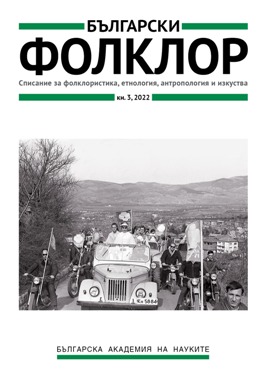
The article analyzes the local holiday “Kyustendil Spring Day”, invented in the late 1960s, in the context of the socialist festivity policies by examining the ideological content inscribed in its semantics, symbols and rituals. The overarching research questions refer to the instrumentalization of the holiday by the socialist authorities and its functions in the local festive calendar. The analysis rests upon archival material, articles in the local press, photographs, and discussions and comments in the social media networks, as well as upon a limited number of interviews conducted by the author.
More...

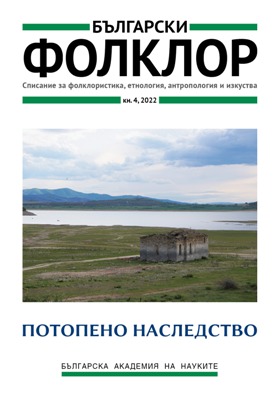
In the narratives of migrants from submerged areas, four main concepts can be distinguished: home, land, church and cemetery. The article is devoted to the concept of a cemetery in the memories of forced resettlement from areas submerged during the construction of hydroelectric power plants in Ukraine. Excerpts from memories about the moving of cemeteries are presented. Folk beliefs, nominative vocabulary for events, places, characters, plots, persistent themes, and basic folklore plots are explored. The following main ideas are identified: it is not possible to move a cemetery entirely; disturbing the peace of the cemetery leads to dangerous consequences and provokes the wrath of the dead; the re-installation of grave crosses restores the sacredness of the graves, consolidates the resettled community and updates the memory of its historical past.
More...